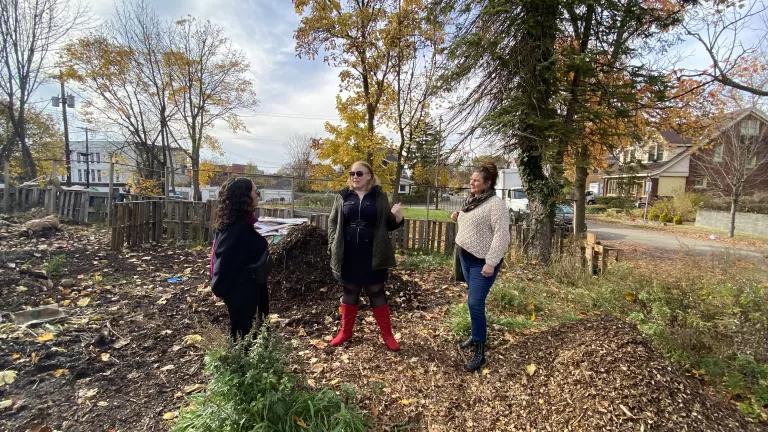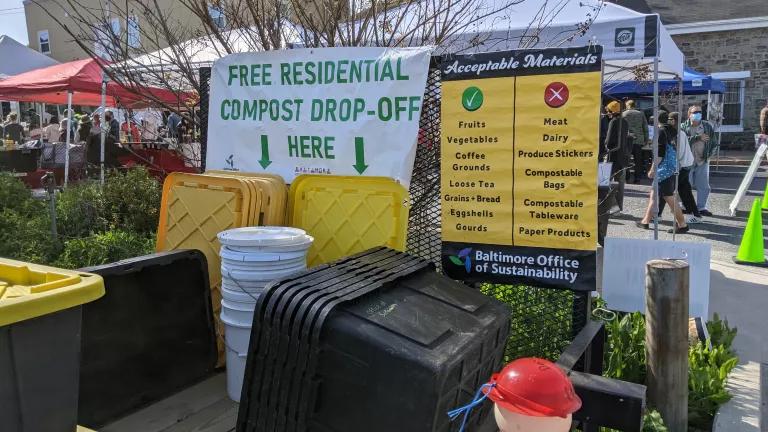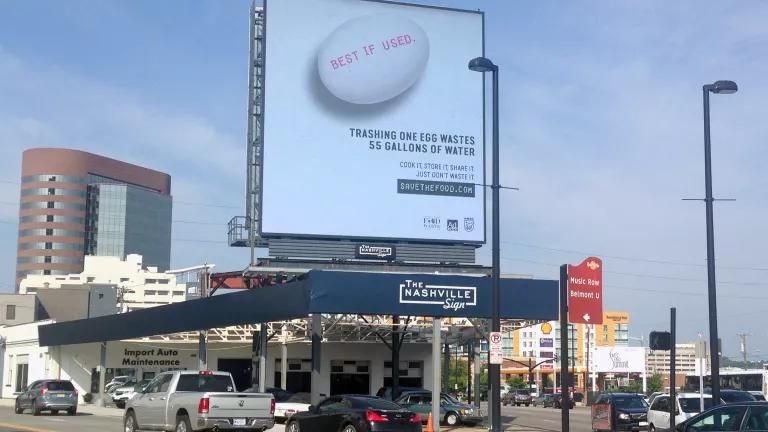
Cities around the country are increasingly motivated to tackle the issue of food waste, and Baltimore is helping to lead the way. The city creates 430,000 tons of trash annually, and the majority of this waste is incinerated, creating health-harming and climate-changing air pollution. At the same time, nearly one in four Baltimore residents does not have a reliable supply of food, more than twice the national average. By beginning to address food waste in a holistic way—through prevention, rescue, and recycling—the city can start to reduce disposal costs, limit environmental pollution, and get more fresh food to those in need.
Recognizing the incredible leadership and opportunity in Baltimore, NRDC and The Rockefeller Foundation selected the city as one of two model cities for the Food Matters Project; the other is Denver. Baltimore City, NRDC, and The Rockefeller Foundation announced their partnership in September 2018 along with the release of Baltimore’s Food Waste Recovery Strategy.
Among other goals, the strategy aims to reduce commercial food waste in Baltimore City by 50 percent and residential food waste by 80 percent by 2040.
Baltimore City is working with NRDC to implement the multifaceted Baltimore Food Waste Recovery Strategy, which includes:
- Educating residents about food waste and their role in reducing it through NRDC’s Save the Food public service campaign and complementary community engagement efforts;
- Encouraging surplus food donation by local businesses and engaging public health inspectors and other stakeholders to increase food donation; and
- Encouraging and incentivizing residents and businesses to recycle and compost organics and food scraps.


